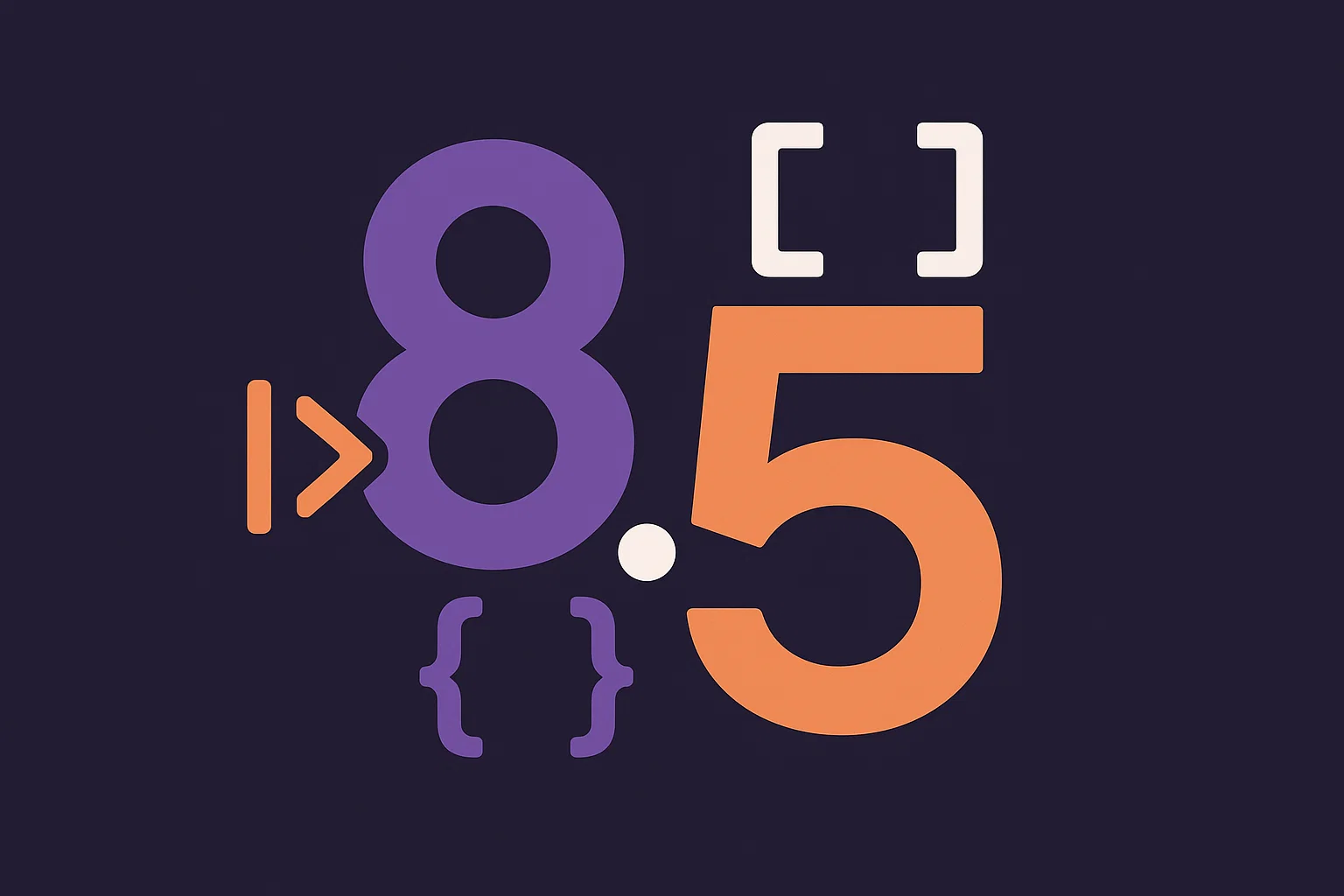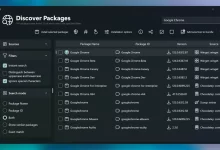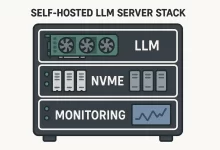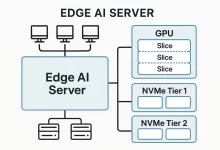What’s up, fellow developers! Let’s talk about PHP. I know, I know. For years, it’s been the language everyone loves to hate. I remember back in my early days, wrestling with clunky syntax and inconsistent function names. It felt like a rite of passage. But let’s be real—PHP has been doing some serious growing up lately. And the upcoming release, PHP 8.5, is shaping up to be another massive leap forward. The PHP team is dropping some seriously cool stuff that’s gonna make our lives so much easier.
I’ve been digging through the early notes and RFCs, and I’m genuinely hyped. This isn’t just a minor patch; we’re getting some powerful tools that address long-standing requests from the community. These are the kinds of quality-of-life updates that streamline your code, make it more readable, and ultimately, let you build better applications faster. We’re going to explore the most impactful PHP 8.5 new features, from long-awaited array helpers to a syntax game-changer you won’t want to live without. So grab a coffee, and let’s dive into what the future of PHP looks like.

1. Finally! Simple Array Helpers: `array_first()` and `array_last()`
Let’s kick things off with something that will make you say, “How did we not have this already?” For as long as I can remember, getting the first or last element of an array in PHP has been… well, kinda awkward. You either had to use `reset()`, `end()`, or a combination of `array_keys()` with `array_key_first()` or `array_key_last()`. It worked, but it was never elegant.
Remember this song and dance?
<?php
// The old, clunky way
$items = ['first', 'second', 'third'];
// To get the first item
$firstItem = $items[array_key_first($items)]; // Returns 'first'
// To get the last item
$lastItem = $items[array_key_last($items)]; // Returns 'third'
?>It’s verbose and not very intuitive. PHP 8.5 cleans this up beautifully by introducing `array_first()` and `array_last()`. It’s one of the most requested PHP 8.5 new features, and it’s easy to see why.
How They Work
These new functions are exactly as straightforward as they sound. They provide a direct, readable way to grab the very first or very last value from any array, whether it’s indexed or associative. No more workarounds!
Check out how clean this is:
<?php
// A simple indexed array
$users = ['Alice', 'Bob', 'Charlie'];
$firstUser = array_first($users); // 'Alice'
$lastUser = array_last($users); // 'Charlie'
echo "The first user is {$firstUser} and the last is {$lastUser}.";
// It works just as well with associative arrays
$appConfig = [
'driver' => 'mysql',
'host' => 'localhost',
'port' => 3306,
];
$firstSetting = array_first($appConfig); // 'mysql'
$lastSetting = array_last($appConfig); // 3306
echo "The driver is {$firstSetting}.";
?>Handling Empty Arrays Gracefully
One of the best parts about these new functions is their predictable behavior with empty arrays. Previously, trying to access a key on an empty array would throw a warning. Now, `array_first()` and `array_last()` simply return `null`, which is perfect for conditional checks and avoids unnecessary errors.
<?php
$emptyList = [];
$first = array_first($emptyList); // null
$last = array_last($emptyList); // null
var_dump($first); // Outputs: NULL
?>This little addition is a huge win for code clarity and robustness. It’s a small change, but it’s one you’ll find yourself using daily.

2. The Game-Changer: The Pipe Operator (`|>`)
Okay, this is the big one. If there’s one feature that will fundamentally change how you write and think about PHP code, it’s the new pipe operator (`|>`). If you’ve ever worked with languages like Elixir, F#, or even used command-line pipes in Linux, you’ll feel right at home. This is a massive step towards a more functional, readable, and elegant coding style in PHP.
Traditionally, when you need to perform a series of operations on a value, you end up with deeply nested function calls. It’s hard to read and even harder to debug.
Consider this classic example of string manipulation:
<?php
// The old, nested "onion" style
$uglyText = ' SOME messy STRING ';
$cleanText = trim(ucfirst(strtolower($uglyText))); // 'Some messy string'
?>To understand what’s happening, you have to read it from the inside out: first `strtolower`, then `ucfirst`, then `trim`. It’s not a natural way to process information. The pipe operator flips this on its head, letting you write operations in the order they execute.
A More Readable Workflow
With the pipe operator, you can chain callable operations together from left to right. The result of the expression on the left is automatically passed as the first argument to the function on the right. It’s pure syntactic sugar, and it’s delicious.
Let’s refactor the previous example using this fantastic addition from the list of PHP 8.5 new features:
<?php
// The new, beautiful pipe style
$messyText = ' SOME messy STRING ';
$cleanText = $messyText
|> 'strtolower'
|> 'ucfirst'
|> 'trim';
// $cleanText is now 'Some messy string'
?>Look at that! It reads like a set of instructions: take the messy text, then make it lowercase, then capitalize the first letter, then trim the whitespace. It’s logical, clean, and self-documenting.
This new syntax not only makes the code more beautiful but also enhances maintainability. When you’re handling complex data transformations, having a clear flow is critical. A proper server configuration is just as crucial to ensure these operations run smoothly. For instance, understanding how to properly set up and secure your server environment provides a rock-solid foundation for your high-performance PHP applications.
Limitations to Keep in Mind
The pipe operator is powerful, but it’s not magic. There are a few rules:
- Single Argument Focus: The piped value is always passed as the first argument to the next function. This means it works best with functions that take the data to be transformed as their first parameter.
- Required Parameters: All functions in the chain must accept at least one required parameter.
- No By-Reference Params: You generally can’t use functions that modify arguments by reference (with a few core exceptions).
Despite these limitations, the pipe operator is an incredible addition for data transformation pipelines, making complex operations far more manageable.
3. New Handler Getters: `get_error_handler()` and `get_exception_handler()`
Debugging and custom error handling are crucial for any serious application. While PHP has long allowed you to set your own error and exception handlers with `set_error_handler()` and `set_exception_handler()`, there was never a built-in way to find out what handler was currently active. This could be a real pain, especially in large codebases or when working with frameworks that do a lot of their own setup.
PHP 8.5 rectifies this by introducing `get_error_handler()` and `get_exception_handler()`. These functions let you inspect the current global handlers, which is a huge boost for debugging, testing, and creating more robust systems.
Why This Matters
Imagine you’re building a package that needs to temporarily override the exception handler to log things in a specific way, and then restore the previous handler. Before, you’d have to store the old handler in a variable yourself, which could get messy. Now, it’s trivial.
<?php
// Check the current exception handler
$currentHandler = get_exception_handler();
if ($currentHandler) {
echo 'A custom exception handler is set.';
} else {
echo 'Using the default PHP exception handler.';
}
// Example of temporarily overriding and restoring
function myCustomLogger(Throwable $e) {
// ... log to a special file
}
$previousHandler = get_exception_handler();
set_exception_handler('myCustomLogger');
// ... do some work that might throw exceptions ...
// Restore the original handler
set_exception_handler($previousHandler);
?>This is a prime example of the maturity we’re seeing in the PHP ecosystem. These introspective functions give developers more control and insight into the application’s runtime behavior.
4. Enhanced cURL: `curl_multi_get_handles()`
For those of us who work with APIs, PHP’s cURL extension is our bread and butter. The `curl_multi_*` family of functions is particularly powerful, allowing for asynchronous, parallel HTTP requests. However, managing the individual cURL handles within a multi-handle stack has always been a bit manual. You had to keep track of them in a separate array yourself.
This is another one of the quality-of-life PHP 8.5 new features. The new `curl_multi_get_handles()` function simplifies this process by returning an array of all the cURL handles currently registered with a multi-handle instance.
<?php
$multiHandle = curl_multi_init();
$ch1 = curl_init('https://api.example.com/users');
$ch2 = curl_init('https://api.example.com/posts');
// Add handles to the multi-stack
curl_multi_add_handle($multiHandle, $ch1);
curl_multi_add_handle($multiHandle, $ch2);
// New in PHP 8.5: Get all the handles back!
$handles = curl_multi_get_handles($multiHandle);
// $handles is now an array containing [$ch1, $ch2]
print_r($handles);
// Now you can easily loop through them after execution
$running = null;
do {
curl_multi_exec($multiHandle, $running);
} while ($running > 0);
foreach ($handles as $handle) {
$response = curl_multi_getcontent($handle);
// ... process response ...
curl_multi_remove_handle($multiHandle, $handle);
}
curl_multi_close($multiHandle);
?>This makes post-processing of parallel requests cleaner and less error-prone, as you no longer need to maintain a separate array of handles that could potentially go out of sync with the multi-handle stack.
5. Better Internationalization: `locale_is_right_to_left()`
Building applications for a global audience means dealing with different languages, formats, and writing directions. Right-to-left (RTL) languages like Arabic, Hebrew, and Persian require special handling in your UI to ensure a natural user experience.
PHP 8.5 makes this easier with the new `locale_is_right_to_left()` function. It provides a simple, direct way to check if a given locale uses an RTL script.
<?php
// Functional approach
var_dump(locale_is_right_to_left('ar_SA')); // bool(true) for Arabic
var_dump(locale_is_right_to_left('en_US')); // bool(false) for English
var_dump(locale_is_right_to_left('he_IL')); // bool(true) for Hebrew
// Object-oriented approach
var_dump(Locale::isRightToLeft('fa_IR')); // bool(true) for Persian
?>Now, in your templating engine or view logic, you can easily add a conditional check to apply the correct CSS or HTML attributes:
<html lang="<?php echo $currentLocale; ?>" dir="<?php echo locale_is_right_to_left($currentLocale) ? 'rtl' : 'ltr'; ?>">
...
</html>This is a small but significant feature for developers committed to creating truly internationalized and accessible applications.
6. New `PHP_BUILD_DATE` Constant
Here’s a handy new tool for your debugging arsenal. PHP 8.5 introduces a new predefined constant, `PHP_BUILD_DATE`. As the name suggests, it tells you the exact date and time the PHP binary you are using was compiled.
Why is this useful? It helps you verify exactly what version of a PHP build is running, especially in production or complex CI/CD environments. If you suspect an issue is related to a specific build or patch level, this constant provides definitive proof.
<?php
echo "PHP Version: " . PHP_VERSION . "\n";
echo "Build Date: " . PHP_BUILD_DATE . "\n";
// Example Output:
// PHP Version: 8.5.0-dev
// Build Date: Jun 23 2025 18:05:00
?>It’s perfect for health check endpoints, diagnostic scripts, or just getting a clearer picture of your environment.
7. CLI Enhancement: `php –ini=diff`
Finally, a little something for those of us who live in the command line. Setting up `php.ini` can sometimes feel like a guessing game. You change a value, but did it take effect? What’s the default value anyway? The new `php –ini=diff` flag is a fantastic utility that helps answer these questions.
When you run this command, it will only output the INI settings that you have explicitly changed from their default values.
# Show only the settings that have been modified from the default
$ php --ini=diff
# Example Output:
# memory_limit = 256M (default: 128M)
# upload_max_filesize = 50M (default: 2M)
# date.timezone = "UTC" (default: "")
This is incredibly useful for quickly auditing a PHP environment’s configuration, spotting unintended changes, and ensuring your setup is exactly as you expect. It’s a huge time-saver compared to manually scanning a full `php –ini` output. For more insights on web technologies, you can refer to high-authority resources like the Mozilla Developer Network’s PHP section.
This command-line utility is incredibly helpful for quickly diagnosing differences in a server’s environment, ensuring your application runs under the settings you expect. Speaking of server management, optimizing your database is just as critical. Learning advanced techniques, such as how to Mastering Linux Server Essentials, works hand-in-hand with efficient PHP code to deliver the best possible speed for your website.
What This Means for PHP Developers
The collection of PHP 8.5 new features reflects a clear direction for the language: improving the developer experience. We’re not just getting raw power; we’re getting elegance, readability, and better tools to manage complexity. The pipe operator alone is a testament to the influence of functional programming paradigms, pushing us towards writing cleaner, more declarative code.
These updates, from simple array functions to powerful CLI tools, show that the PHP core team is listening to the community. They are addressing the small papercuts and the major pain points that developers have talked about for years. The result is a language that feels more modern, more robust, and frankly, more enjoyable to work with than ever before. As PHP continues its evolution, it solidifies its place as a dominant force in web development, shedding its old reputation and embracing a future of clean, efficient, and powerful code.

 FoxDoo Technology
FoxDoo Technology







